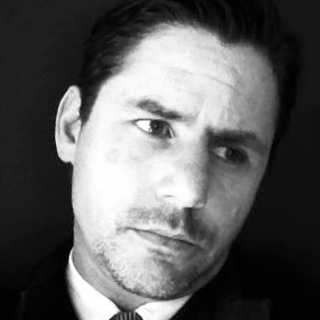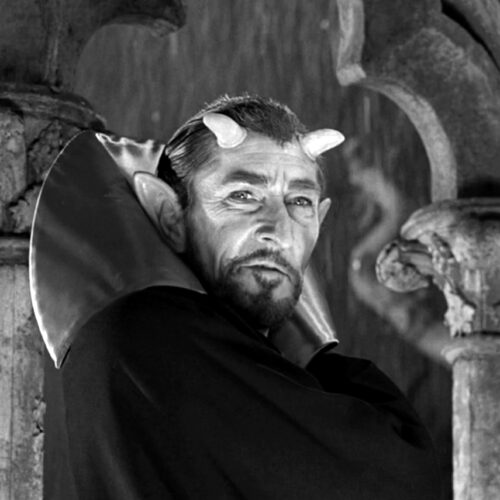
“Christianity brings to fulfilment and completion imperfect and partial insights about reality, scattered abroad in human culture.”
– Alister McGrath on C. S. Lewis
For a very long period of time, I would read only nonfiction books. A good 20 years to be exact.
I held tight to a secret conviction that fiction had little to offer the reader because it was mostly make-believe; nothing but the subjective inventions of one person’s imagination. Once in a while, I would indulge in reading fiction just for fun when I was on vacation or had nothing better to do. It was just a momentary flight into fancy. But when it came to personal growth and learning, I stuck to reading only nonfiction. So for most of my adult years, I spent my precious reading hours buried in biographies and wrestling with important theological or philosophical subjects from serious-minded men and women. I was searching for truth and I had no time to play around with fiction.
One day I was bored so I went surfing on YouTube and some videos popped up from a random algorithmic refresh of my home page which were focused on the craft of writing. I ended up clicking on a video that took place at the Library of Congress where Stephen and Tabitah King were on a panel discussing writing. Stephen King started talking about writing about dragons and pixie fairies right before his wife inserted a comment and said, “A lot of people have a prejudice against fiction because they say it’s not true…well I gotta tell you there are more lies on the nonfiction side of the aisle.” I chocked on the coffee I was drinking, and then decided to yell at the screen on my iPad, “How stupid! Everyone knows nonfiction is based on factual accounts, whereas fiction, by definition, means imaginary or invented.” What does she mean by this? And how can you take any answer seriously from a woman who is married to the man who wrote the book “It”? He forever warped America’s collective minds against poor old innocent circus jugglers with his pulp-fiction horror story about a clown who lived in the sewers of a quiet little town in the Northeast that stalked and murdered children for kicks.
What does Stephen King actually know about the truth?
Well his wife Tabitha, who helps Stephen write all of his novels, and who also happens to be a very brilliant and introspective lady, made me rethink the value of fiction. How could fiction ever be considered truthful?
She went on to say that fiction allows you to enter into the character’s life and feel what they are feeling. As I considered this new thought, I started to understand what she meant by this because there are some books where you join in with the main characters and say, “Yes, I have experienced that before. Yes, I know a person just like that. Yes, I feel exactly like that in life. I have those same fears, wants, desires, longings, and dreams.” And when this existential moment happens with the reader and the text, that story of fiction is telling the absolute truth. I concluded from listening to her that if a work of fiction is ever untruthful in its telling, no one will want to read it. It seems to me that bad fiction is nothing but untruthful writing.
But what really caught me off guard was when she said that you find more lies in nonfiction, and at times it can even be less real than fiction. That revelation blew my mind, though upon reflection I had to admit that much nonfiction is couched in untruth because it can manipulate the facts to hide the author’s own personal beliefs and worldviews under the guise of truth. Nonfiction, with its claim to historical reliability, greases the skids for the clever writer to then take that history and slant it in the direction he wants reality to go. While at the same time, the reader of the nonfiction will let down their guard and just accept what is being said as the actual truth.” So if we were to sum up these ideas, we can say that nonfiction has a much easier time getting away with untruth than fiction does.
Hmm, that sounds like most news stories of today. Can anyone say the 1619 Project? I digress.
I must admit, I wasn’t quick to agree with this assessment by Tabitha King. I kept telling myself, “But fiction is fiction.” And then I remembered a few books I read over the course of my adolescent years that brought her point to light. I read a good number of nonfiction books as a teenager about Pete Rose the baseball star, my hero, which talked about how he was an amazing baseball player who was ever the shining example of “hustle and good sportsmanship.” — a rare athlete who competed out of pure love for the game. I was compelled by those books and even modeled my own play after his example. A decade after these books were written, I learned that Pete Rose was found out to be gambling on the baseball games he played in, and as a result, he was to be forever barred from entering the Baseball Hall of Fame. I felt betrayed and lied to. He was not even close to the bastion of integrity he was once painted to be.
A few years later a friend gave me a book written by John Grisham called, “Bleachers.” It is a fictional book about a high school football coach and how his narcissistic personality adversely affected his football players the rest of their lives. As I was reading it all I could think of was my own high school football coach, it brought his memory back to life in vivid color. I could feel my chest tightening as the players in the book described their fears and anxieties playing under a tyrannical coach. I remembered my past, and the same types of run-ins I had with my real coach the characters in the book had with their fictional coach. “Bleachers” may be the truest book on sports I have ever read.
So I started wondering to myself, perhaps fiction actually can be used to tell the truth. Not only tell the truth, but perhaps it has the ability to plunge deep into the psyche of the human condition in ways nonfiction often can’t. Nonfiction has restrictions and limitations, it is bound to what is known and recorded, and can only partially speculate when it comes to the motives of the real human beings it is writing about. But with fiction, there is no holding back and no speculation. The writer can fully explore what darkness lies beneath, and can accurately portray the real struggle of good overcoming evil. Fiction is free to be completely honest in ways nonfiction never can.
Two authors instantly came to my mind with their ability to make fiction speak truth: C. S. Lewis and his Narnia stories, and J. R. R. Tolkien and his Lord of the Rings Trilogy. Both of these wonderful adventures captured my heart in ways I can’t describe, they felt so real, so human. They also were able to portray both the diabolical power of evil and how the gracious hand of a Sovereign God holds ultimate sway over the lives and fortunes of human beings.
Don’t get me wrong, I still love to read nonfiction. Historical biographies told well make the past come alive. Learning where we came from and seeing how history repeats itself is an amazing lesson to learn. We must learn from those who came before us. But what I am also coming to realize is that even the best writers of nonfiction don’t get the whole story right or understand all the complexities that cause human beings to do what they do. People are mysterious, and sometimes it takes a lifetime to even know the person you share your house with. Nonfiction is limited.
Consider how the news is reported today, especially in politics. Reporters and journalists tend to paint their adversaries with broad black brush strokes, forcing real-time news events into a preconceived template, and interpreting the actual decisions of real people into their narrow narrative that barely scratches the surface of the truth. And tragically, very little (if any) grace is given to those on the other side of issues, while their intentions and motives are always assumed. Look quickly at Critical Race Theory and you will see that it is nothing more than a poorly written story conscripted over a large swath of people. In the CRT plotline, there is no freedom to let people be themselves, the proponents of this Marxist ideology believe humans are nothing more than behavioristic slaves bound only to act as their skin dictates. This isn’t real life, it is a forced construct meant to manipulate reality. Real people have become nothing but stiff cardboard cutouts, there no longer is any depth or nuance to understanding the human condition. Gone is actual storytelling.
While those who do align with the pundits’ philosophical beliefs are always given a pass, writers are told by their editors to look past their own team’s failings and imagine only good thoughts no matter how shallow or incompetent the people actually are. How else can people really believe that the current President we have in office is a brilliant orator or great thinker? Looking honestly, he sure seems like a feeble man whose best days seem behind him, but under the pen of our new nonfiction writers, he must be seen as a god who lives large in their fictional world of talking points and news spin.
But with real fiction and good storytelling, complex theology is allowed to be put into play. Human depravity can cut deep into every character’s heart, even the heroes. In fact, the more the hero is allowed to struggle with his own humanity, the more the story rings true. And the best part of all, the lowest of characters in fiction stories can still be offered redemption. That is how it is in real life outside of the forced narratives of tolerance and inclusion. Gone are the sweeping generalizations of group identity, and instead, the person is allowed to be a real individual. In the real heart of every man and woman is a person who struggles, we all seek a new chance at life. We all fail. Good fiction focuses on people, individual people. It is how life actually is.
What is amazing is how the Gospel is a fairy tale come true. Fiction becomes reality. A dead man rises. No nonfiction writer would ever really believe that is possible. But a good storyteller knows the truth when he hears no matter how far-fetched it may seem. Ah, heaven will be the place where fiction becomes nonfiction, and true truth will reign forever supreme!

Christopher J. Weeks is an author and has been a bartender, rugby player, salesman in the Chicago loop, teacher in Russia, and now for the last 25 years, he has been pastoring with his wife and four children at a rural church amidst the apple orchards of West Michigan farmland.





